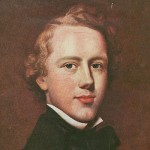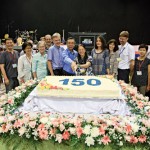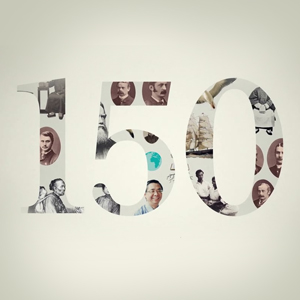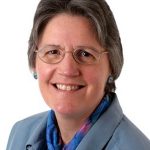There is something about the China Inland Mission and OMF story which I find compelling. Its beginnings can be traced back to Susannah Wesley and her prayers for her sons; and to a young stonemason, who decades later threw eggs and rotten tomatoes at John Wesley and his travelling preachers in Barnsley, West Yorkshire.
On the morning of his wedding day, that same stonemason, the first James Taylor, walked in the fields, mindful of the vows he would shortly take. Suddenly he found himself reflecting on what he had heard from Wesley: ‘As for me and my house, we shall serve the Lord.’ The words went straight to his heart and he knelt down to pray. Then realizing the time, he dashed home to change, and it is said that friends adjusted the hands of the church clock, so he arrived just in time for his wedding. His new wife was startled when she heard his news: ‘Have I just married a circuit rider?’ she uttered in dismay. It was not what she had planned.

The grace shown to James Taylor (1749-1795) on that cold February morning in 1776 would travel down the generations. The historian K S Latourette was to refer to Taylor’s great-grandson, the more famous James Hudson Taylor (1832-1905), as ‘one of the four or five most influential Westerners in China’. Furthermore, Hudson Taylor’s seminal thinking would influence mission endeavour much more widely.
How to flourish after 150 years
Few movements last 150 years. Last year marked that anniversary for the China Inland Mission/OMF International and, too, for the Salvation Army. Each has retained its original beliefs, vision, mission, and values; and each has adapted with the times. Each has remained anchored, while forward-looking. There is no lengthened shadow of an historic leader.
The key, under God, is to appoint successive leaders who, rooted in Scripture, can distinguish between the three Ps of principles, which never change; policies, which, while not easily changed, need the freedom to adapt to their time and context; and practice, which may need to change frequently for the front line to be effective at local level.
Now operating in 32 centres across 25 countries, and with diverse ministries, OMF has many leaders—national leaders, ministry leaders, those who mobilize and who train new workers, church planters, and those seconded to teach in seminaries. All must distinguish between the three Ps, and ‘stay aligned’.
From Barnsley to Brighton to Inland China
Few would have noticed 40 or so people on Brighton Beach on Thursday, 25 June 2015. They were there to commemorate an unremarkable sight: James Hudson Taylor pacing the beach alone on the same date 150 years earlier. (He had been in China for several years by 1865, serving with the China Evangelization Society.) His heart was troubled at the comfort of Western Christians in church that Sunday morning, when the inland provinces of China were unreached; and he resolved, under God, to find a way to forge into those provinces. Hudson Taylor bore one of the clearest marks of a leader, indeed the sine qua non of leadership—a sense of dissatisfaction with what is, and a resolve for better.
So it was that the China Inland Mission (CIM) was born ‘with £10 in the bank, and all the promises of God’. Taylor prayed for ‘24 skilful, willing workers’, two for each of China’s provinces and two for Mongolia. There was an efficiency in his thinking. Each should be skilful—naturally gifted—as well as willing; and they would travel in twos, as Christ had sent out the 70, for there would be sparse support, especially in the early days. Each would need that same ‘gift of dissatisfaction’, in large measure. Those who sailed to China aboard the Lammermuir in 1866 would form a new breed of missionaries, for they would ‘become Chinese in all matters which were not sinful’.
Further, Hudson Taylor brought into mission-thinking a new principle: that decisions should be taken close to the place where they will be felt. Moreover, his plan for financial support became a watchword for missionary living—members of the CIM were ‘to move men through God, by prayer alone’. That is, they would not ask anyone for financial support, but they would pray for it.
Keeping the story. Telling the story.
From the start, the story was to be recorded, and to be told. Within a few months of founding the CIM, Hudson Taylor wrote his first book: China: Its spiritual needs and claims. The first printing sold out quickly. ‘Communication is the lifeblood of the mission’, he wrote, ‘second only to prayer.’ His regular news organ China’s Millions was a priority. The magazine, later called East Asia’s Millions, then East Asia’s Billions, and now, to keep archivists on their toes, simply Billions, was an early flagship.
The mission has drawn gifted writers and thinkers. This is evidenced in scores of books which have proved their worth in remarkable ways:
- Hudson Taylor’s biography by his daughter-in-law Mrs Howard Taylor (née Geraldine Guinness) became a classic.
- A J Broomhall and his seven-volume magnum opus Hudson Taylor and China’s Open Century brought insights which only a family member with access to private papers could bring.
- The fine biographer John Pollock preserved in The Cambridge Seven the story of those whose decision to sail to China in 1885 brought whispers of dismay in senior common rooms.
- Leslie Lyall kept news coming from the church in China through its quiet, dark days; Tony Lambert received that baton.
- Don Cormack recounted the suffering and the glory of the church in Cambodia in his extraordinary work, Killing Fields, Living Fields.
The story of the gospel in East Asia is better documented than in many parts of the world, and is well cared for in major archive libraries in the UK and the US. Careful chronicling, good thinking, and good writing have each played a part. Also, through its book publishing, OMF’s legacy to the wider church has been profound.
Celebrating the anniversary year
In July 2015 over a thousand gathered in North Thailand to ‘Remember. Rejoice. Renew.’ The fare from the platform was rich and substantial. Lindsay Brown, Lausanne International Director, gave the morning Bible readings.[1]

Quoting the Latin American missiologist Samuel Escobar, Lindsay spoke of three kinds of people a movement must have, if it is to last and to flourish—historians to tell stories; teachers to impart values and distinctives; and prophets and visionaries to speak into the contemporary context and set a trajectory. While the first two could be in danger of living in the past, the last could take off at a tangent without them. The tensions of holding all three together had, Lindsay said, marked the life and the modeling of CIM/OMF.
His expositions took the four great themes of God’s working through history; the need for light and salt in society; the gospel and the future; and the call of the cities.
Much work will need to be done in bringing the gospel to each generation of city-dweller, in each culture—to its nationals and its diasporas, in the universities, and in the business and political arenas, and to its techno future-shapers. The megacities will continue expanding, to house the poor and the poorest of the poor.[2]
Bishop Hwa Yung from Malaysia, one of East Asia’s senior missiologists, looked at OMF’s contribution to 21st century mission. It was, he said ‘a multi-polar world of unforeseeable complexity’. Jamie Taylor (James Hudson Taylor IV), like his father Jim a keen Sinologist and careful historian, surveyed the fellowship’s history: its frontiers, its values, and the costly service of its workers.
Those 24 ‘skilful, willing workers’ began a movement which now has frontline and support teams numbering 2,500 from 40 nations. The tenth and current General Director, Patrick Fung, appointed in 2006, is the first Asian to hold this position. A humble man and much influenced by one his predecessors D E Hoste, he commands clear authority.
He said he must add to the theme Remember. Rejoice. Renew a fourth element: the need to Repent. It was a memorable, sombre moment as he led the gathering in confession. He said his personal prayer goals for the movement are to see significant growth in what had perhaps become neglected frontiers: the peoples of the high plateaus in China, the diaspora returnees, and single-party countries. There were now around 100 new ‘skilful, willing workers’ arriving each year. ‘Pray,’ he urged ‘for 150’.
‘Staying Aligned’ for the future
I recall reading of an early-mid 20th century Christian endeavour which hit the rocks, and learning how its board had not been conversant with its early history. The work was clearly in difficulty, and the board had genuinely done its best to save it. However, principles from its early fathers had not been upheld. The compass needle had, it transpired, lost its true North several years earlier. How had the divergence begun? Why was it not noticed? We will leave those questions to future historians.
Let us keep active in identifying the next generation of leaders, and then in helping them learn lessons from history. For a movement’s culture goes deeper than policies and practice over the period that any current generation could have observed. Seeing ourselves in the sweep of history, as guardians only for the moment, brings a right sense of humility. However, we are all fallen, and no movement is without the consequences of some short-sighted judgments.
David Pickard (eighth General Director, 1991-2001) summed up the leader’s agenda, under God, in the pithiest way I have heard it articulated. There were, he said, three questions to be asked, which he reduced to six words: ‘What next? What else? What not?’
One of the unexpected ‘What else’s’ could never have been envisaged in 1865. OMF is helping to train African Christian leaders to reach the huge Chinese diaspora who are making homes and starting businesses in several African countries.
We often refer to ‘the unfinished task’. For the rising generation, this rather staid phrase may sit awkwardly with Paul’s passionate cry, ‘the love of Christ compels us’. The phrase comes (I think) from Bishop Frank Houghton’s searching hymn, ‘Facing a Task Unfinished’, sung at the close of many missions conferences. Houghton was Bishop of eastern Szechuan, and fourth and last General Director of the CIM (1940-51) before its ‘reluctant exodus’ from China.
To mark OMF’s 150th anniversary, modern hymn-writers Keith and Kristyn Getty have devised a new setting, retaining much of its original, which was launched in a special tour named The Task Unfinished in February. May it help to raise up a new generation of ‘skilful, willing workers’; able, gifted, dissatisfied men and women who will not stand by while ‘other lords [beside Christ] hold their unhindered sway’.
Endnotes
- Editor’s Note: In early 2016 the role ‘International Director’ was re-named as Global Associate Director for Regions.
- Editor’s Note: See articles entitled ‘Movement Day and Lausanne’ by Mac Pier (May 2016 issue) and ‘Commitment to the City’ by Paul Hildreth (March 2014 issue) in the Lausanne Global Analysis.
Photo Credit
- All photos in this article courtesy of OMF. Used with permission.

